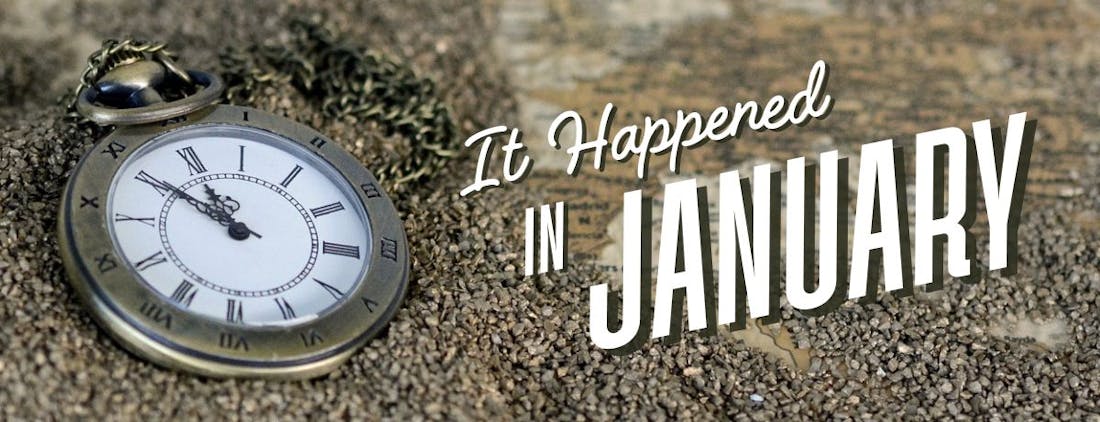
View Historical Events by Day: What Happened on January 13 in History?
Explore the historical events that shaped our world on January 13th. From major milestones to cultural achievements, see what happened on this day in history. Dates for earlier events may be approximate.
Note: Sources for the historical content shown, include research and reviews of relevant Online History Resources or printed material. When possible, we show a link to a source which provides additional or unique perspective about the event.
We do our best to provide accurate information but would appreciate being notified if any incorrect information is found. You may do so by using our Feedback link.
Crusaders led by Bohemond I of Antioch begin the siege of Antioch during the First Crusade.
Crusaders under Raymond IV of Toulouse capture Ma'arrat al-Numan in Syria during the First Crusade.
Raymond IV of Toulouse leads Crusaders in capturing the town of Arqa, Lebanon, during the First Crusade.
Henry V is crowned Holy Roman Emperor in Rome by Pope Paschal II.
The Council of Troyes, convened by Bernard of Clairvaux, acting as a Legate of Pope Honorius II, grants official sanction from the papacy to the Templar Order (Knights Templar) which had been founded in 1119 by some French noblemen. The order and the rules were subsequently approved by Pope Honorius II. The Templar Order gradually increase it size, power and gaining considerable influence. It was eventually abolished by Pope Clement V who disbanded the order in 1312. More
King Sigurd I of Norway dies, and his son Magnus IV becomes king at the age of 11.
King Richard I of England is wounded while besieging the castle of Châlus-Chabrol in France and dies shortly after.
The Principality of Wales becomes united with England following the Statute of Rhuddlan.
King Casimir III of Poland begins his reign, focusing on domestic reforms and strengthening the kingdom.
King Edward III of England convenes Parliament at York, establishing the principle of the northern host.
The English Parliament grants funds for King Edward III's war against France.
Charles IV of Luxembourg is crowned Holy Roman Emperor in Bonn.
The Council of Pisa is announced, aiming to resolve the Western Schism by deposing both Pope Gregory XII and Antipope Benedict XIII.
Completion of the Trondheim Cathedral in Norway after several decades of construction.
The University of Copenhagen is officially inaugurated in Denmark.
English astronomer Thomas Digges publishes a work promoting the Copernican system of astronomy.
Cardinal Richelieu lays the foundation stone for the Church of the Sorbonne in Paris.
The Massacre of Glencoe occurs in Scotland when government troops slaughter the MacDonald clan.
The University of Notre Dame is founded in Indiana, United States.
The United States Congress establishes the Smithsonian Institution.
The Spanish-American War ends with the signing of the Treaty of Paris, ceding Puerto Rico, Guam, and the Philippines to the United States.
An earthquake in Avezzano, Italy, kills over 29,000 people.
The Costa Concordia cruise ship runs aground off Italy, resulting in 32 deaths.
A false missile alert causes panic in Hawaii, warning of an incoming ballistic missile threat.
The U.S. House of Representatives impeaches President Donald Trump for the second time, charging him with "incitement of insurrection."






.png?auto=format,compress&fit=crop&w=280&h=280&q=93)







.jpg?format,compress&fit=crop&w=280&h=280&q=93)
.jpg?format,compress&fit=crop&w=280&h=280&q=93)

R.jpg?auto=format,compress&fit=clip&w=600)





















